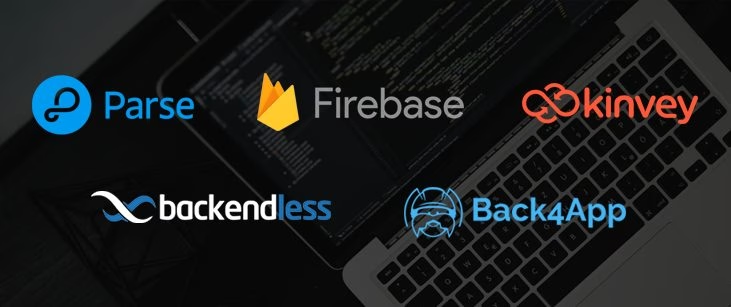

Aran Davies is a full-stack software development engineer and tech writer with experience in Web and Mobile technologies. He is a tech nomad and has seen it all.
Expert In AI Mobile Python Swift WebAre you building an app and wondering about mobile app hosting and where to find the best provider for hosting apps? Interested in how much does it cost to host a mobile app server? This article will answer all the most important and exciting questions about mobile app hosting. Let’s get started! What is a mobile app hosting? Mobile app hosting is a technology or software that allows you to store your app’s data and files in the cloud.
If you want a quick answer, here’s the list of the most popular providers for mobile app hosting (we’ll discuss these in more detail later).
If you want to explore all the options to manage the backend of your mobile apps, read on.
Developing the backend of mobile apps is an entirely different ball game from frontend development. E.g., you and your team must have the following knowledge:
But, all this raises another issue — that of hosting for app development.
You have options for the overall management of the mobile app backend, and these are as follows:
Get a complimentary discovery call and a free ballpark estimate for your project
Trusted by 100x of startups and companies like
MBaaS providers leverage the Cloud computing “as-a-service” model, where you consume their service while they manage your mobile backend.
A good MBaaS provider will offer you the following:

You have multiple choices of MBaaS providers with different hosting plans. Here are some of the top examples:
Read our comparison of MBaaS providers in “How To Choose The Best Mobile Backend As A Service (MBaaS)?” for more details.
I will now explain the option that falls between relying solely on an MBaaS provider and coding your backend entirely yourself.
While MBaaS is a nice option for you to host a backend for your mobile application, there are times when you need higher flexibility.
In this section, I will discuss how you can use the Google Cloud service, and build your backend using their ready-made tools.
I earlier explained how you can consume Google Firebase services for your backend, now let’s use it as a starting point.
While you can start easily with Firebase and bring your mobile app to life quickly, you may have a more complex requirement. For example, if your app needs to modify synchronized data, you need more customization options.
The Google App Engine standard environment is a ‘Platform as a Service’ (PaaS), which can monitor, scale, and update the hosting environment. As with the Cloud computing PaaS model, you bring your code and data.
For your mobile app backend, it means that you need to code your backend. Read more about the App Engine standard environment in its Google Cloud document repository.
Here I recommend that instead of coding your mobile backend from scratch, you extend Firebase. This automatically provides you with real-time data synchronization.
While your app can now modify synchronized data, what if you need a higher level of customization?
For example, do you need to:
Now, you need more customization. Read on!

Google App Engine’s flexible environment offers you more customization options over the standard environment. It does everything that the standard environment can do, however, it uses Docker containers.
Hire expert mobile app developers for your next project
62 Expert dev teams,Since it runs your backend service inside the container, you can configure it. This enables you to call native binaries, write to file systems or make other system calls.
Find out more about the App Engine flexible environment in its Google Cloud services documentation repository.
While you have customized better with this step, what if you want more customization? Read on, to find out what you can do to automatically generate client libraries. Your app can use them to call the backend directly.
Your mobile app can make direct API calls, using the client libraries that the Cloud Endpoints generate. You don’t need to write code to facilitate communication with App Engine.
As explained earlier, App Engine being a PaaS handles hosting, scaling, monitoring, etc.
This approach to mobile app hosting service also allows you to reduce storing files on the mobile device since you are moving files to your Cloud storage.
Additionally, the Cloud messaging service allows push notifications. Read about the Google Cloud Endpoints in its Google Cloud documentation.
So, you have customized more, and that’s great! However, you can’t use this approach, and must customize more, if your app needs to do the following:
We are progressing on a continuum in which we started with using an MBaaS. We didn’t have options to customize, hence, we moved using PaaS such as Google App Engine, where we had more customization options.
If your customization requirements are higher, then you need a ‘Do-It-Yourself’ (DIY) approach.
It’s the hardest way to manage your backend requirements, where you need to build your backend on your own and find mobile app hosting providers too.
It’s a complex project and if you don’t have the necessary backend development, infrastructure, and security skills in your team, consider getting professional help. DevTeam.Space can provide individual developers or an entire development team to assist you in implementing your project.
You need to choose the right technology stack for development. There are two main options here, namely, hybrid app development, and native app development. Which one should you choose?
Hybrid app development allows you to create a mobile app for both Android and iOS with a single code base.
This keeps the development costs down, moreover, you need to maintain one code base only. Modern hybrid app development frameworks like React Native deliver near-native “user experience” (UX).
Well, the key operative word in the above was “near-native”, and that makes a difference! Native apps offer the best UX since you code them using programming languages that are specifically designed for the respective platforms.
They also offer the best performance and security, as I explained in “What is the best development approach to guarantee the success of your app?”.
I recommend that you prioritize UX and develop native apps. You should use the following programming languages:
Hire expert mobile app developers for your next project
Trusted byWell, we covered programming languages, however, you would like to scale your development process, wouldn’t you? You would also want to create a consistent framework for your front end to access the back end, therefore, I recommend that you create APIs.
“REST” (Representational State Transfer) is the de-facto standard for API development, therefore, I recommend that you create RESTful APIs. API development requires careful planning, using the right tools, documenting the APIs, hosting them on a cloud platform, and securing them.
Need help with API development? Our guide “How to build RESTful API for your mobile app?” is just what you need!
You also need to use appropriate database solutions for API development, therefore, I recommend the following:
Once again, you have a wide choice of mobile app hosting providers. I recommend you explore the following, however, it’s not an exhaustive list:
Depending on your app, you may also have to explore additional tools in the DIY approach, as follows:
I recommend that analyze your requirements carefully. If ‘Time-to-Market’ is your priority, you are better off with an MBaaS to host your Mobile app backend.
On the other hand, if you can’t do without customization, consider the middle way or the DIY approach I have described for mobile app hosting, however, prepare to deal with more complexity.
If you are developing a mobile app and need to scale your team with additional skills and expertise then contact DevTeam.Space.
DevTeam.Space is an innovative American software development company with over 99% project success rate. DevTeam.Space builds reliable and scalable custom software applications, mobile apps, websites, speech recognition systems, ChatGPT and AI-powered solutions, and IoT solutions and conducts complex software integrations for various industries, including finance, hospitality, healthcare, music, entertainment, gaming, e-commerce, banking, construction, and education software solutions on time and budget.
One of our dedicated tech account managers will be in touch to show you similar projects we have done before and share how we can help you.
The answer to this web hosting question depends on the kind of application that you are developing and performance vs. cost requirements, etc. For a precise answer, you should send your product specification to DevTeam.Space to talk with an expert.
How to build a mobile app backend?Build a team of expert mid to senior-level developers. Give them the project specifications and arrange the development splints for them. With the proper instructions, they should be able to build your mobile backend.
What is mobile app backend architecture?Conventional backend architecture includes a web server, an application server, and a database.
Learn more about mobile backend hosting from our expert articles:

Alexey Semeney
Founder of DevTeam.Space
Alexey is the founder of DevTeam.Space. He is award nominee among TOP 26 mentors of FI's 'Global Startup Mentor Awards'.
Alexey is Expert Startup Review Panel member and advices the oldest angel investment group in Silicon Valley on products investment deals.